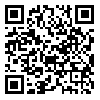دوره 11، شماره 2 - ( 10-1404 )
جلد 11 شماره 2 صفحات 128-115 |
برگشت به فهرست نسخه ها
Ethics code: IR.SEMUMS.REC.1399.187
Download citation:
BibTeX | RIS | EndNote | Medlars | ProCite | Reference Manager | RefWorks
Send citation to:



BibTeX | RIS | EndNote | Medlars | ProCite | Reference Manager | RefWorks
Send citation to:
Yaghmaei S, Ebrahimian A, Pourteimour S. Nurses’ Perspectives on Gender Equality Policies During the COVID-19 Response Phase. Health in Emergencies and Disasters Quarterly 2026; 11 (2) :115-128
URL: http://hdq.uswr.ac.ir/article-1-719-fa.html
URL: http://hdq.uswr.ac.ir/article-1-719-fa.html
Nurses’ Perspectives on Gender Equality Policies During the COVID-19 Response Phase. فصلنامه سلامت در حوادث و بلایا. 1404; 11 (2) :115-128
چکیده: (1365 مشاهده)
Background: Gender equality is a foundational aspect of the nursing profession. However, there is limited documentation of how gender considerations were incorporated into policy-making during the COVID-19 pandemic. This study explored nurses’ perspectives on gender equality policies during the pandemic response phase.
Materials and Methods: A qualitative content analysis was conducted using semi-structured interviews with 14 nurses working in COVID-19 wards. Participants were selected through purposive sampling, continuing until data saturation. Data were analyzed following Graneheim and Lundman’s method.
Results: The central theme identified was “gender inequality in management policies and resource allocation,” derived from four categories: Inefficient management, inequality in interactions, inequality in resource management, and inadequate attention to staff needs. Nurses reported experiencing gender bias in decision-making and observed unequal access to resources and support during the pandemic.
Conclusion: Nurses perceived significant gender inequality in policy-making during the COVID-19 response phase. Health system leaders and policymakers should prioritize gender equity in all stages of disaster preparedness and response. Further research is necessary to explore gender perspectives in similar high-stress healthcare environments.
Materials and Methods: A qualitative content analysis was conducted using semi-structured interviews with 14 nurses working in COVID-19 wards. Participants were selected through purposive sampling, continuing until data saturation. Data were analyzed following Graneheim and Lundman’s method.
Results: The central theme identified was “gender inequality in management policies and resource allocation,” derived from four categories: Inefficient management, inequality in interactions, inequality in resource management, and inadequate attention to staff needs. Nurses reported experiencing gender bias in decision-making and observed unequal access to resources and support during the pandemic.
Conclusion: Nurses perceived significant gender inequality in policy-making during the COVID-19 response phase. Health system leaders and policymakers should prioritize gender equity in all stages of disaster preparedness and response. Further research is necessary to explore gender perspectives in similar high-stress healthcare environments.
| بازنشر اطلاعات | |
 |
این مقاله تحت شرایط Creative Commons Attribution-NonCommercial 4.0 International License قابل بازنشر است. |





